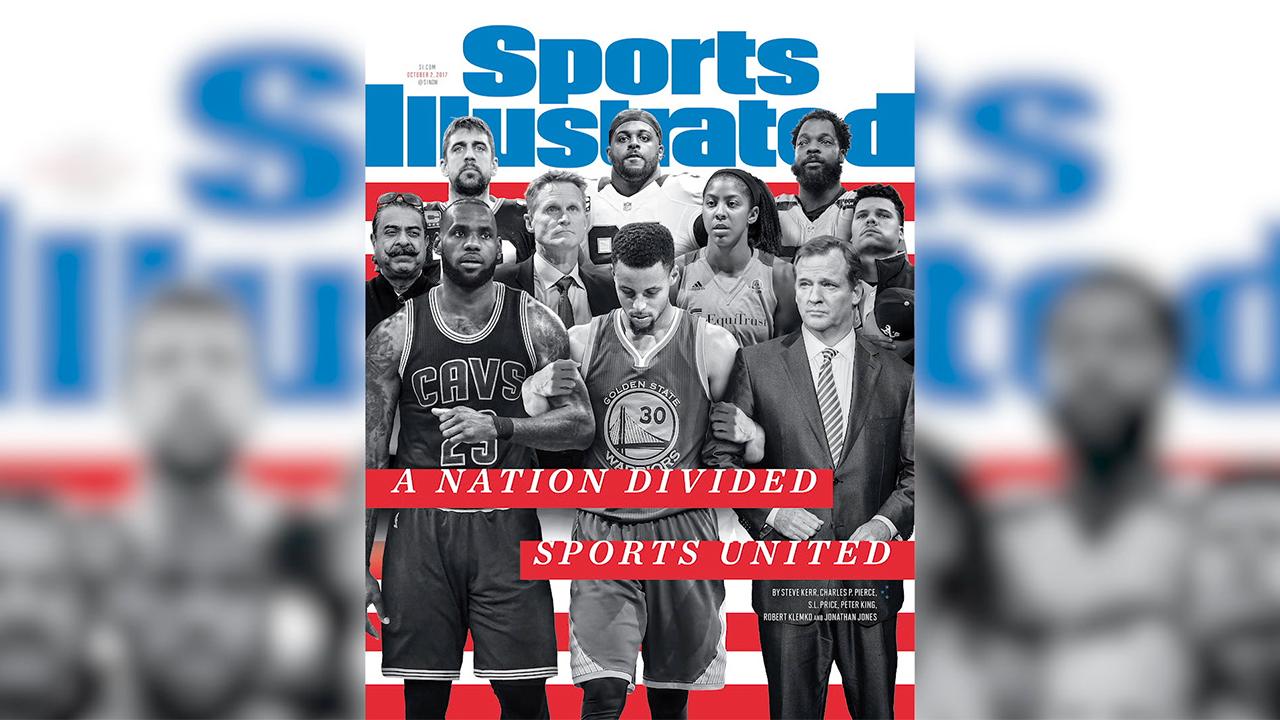Players around you nod their heads in agreement. Some shout, “C’mon!”
Two prominent players—one a well-liked captain—suggest that the team protest a controversial issue by showing public solidarity. The enthusiasm is the room is contagious. Everyone seems on board—except you. The more you learn of the idea the more uncomfortable you become. The group disperses to think about what next steps to take.
You sit in front of your locker and are flooded with questions: What do you do when you find yourself in the minority? Do I compromise my convictions or stand firm? If I stand firm, how do I communicate with others in a way that doesn’t quickly devolve into shouting matches?
Get our "Top Articles" sent to your inbox weekly.
The locker room is seen by many as a type of sanctuary where politics and social issues are kept on the outside. All that matters are players pulling in the same direction to secure wins.
Yet, in-house disagreements among team members can significantly disrupt what happens on the field or court. If you find yourself in the minority, what is the best way to start a potentially explosive conversation?
The advantage of humility
When discussing volatile issues, how we start the conversation is crucial. Do we begin by staunchly presenting our view or exhibiting a sense of humility? The answer will determine if you are about to engage in a give-and-take dialogue or dueling monologues where voices and tempers steadily rise. What difference would it make to enter a discussion humbly seeking not only to present your views, but understand and learn from others?
Sadly, humility has fallen on hard times in today’s argument culture and is grossly misunderstood. Embracing humility does not mean that individuals lack confidence, or will change their position at the slightest challenge. Humility means that we enter a conversation with an openness to the views of others.
The ancient writers of the book of Proverbs advocate the virtue of humility and give warning against its counterpart, pride. While the result of pride is destruction and disgrace, the humble person will experience honor, riches, and fullness of life (11:2, 18:12, 29:23, 22:4). The defining trait of a humble person is that he or she “listens to advice” (12:15). Notice the writer did not say the advice would always be followed, but rather, it would be humbly considered.
Questions for self-assessment
How would others describe you as a conversationalist? Are you seen as open to other views or entrenched in your beliefs? Personal humility can be a difficult quality to assess. I recently came across a list of questions that I found helpful to gauge my own sense of humility. Be warned—these questions reveal much about how we view ourselves as we approach both others and difficult topics.
Even when you feel strongly about something, are you still aware you could be wrong?
Do you trust that truth has nothing to fear from investigation?
Do you reserve the right change your mind? Or do you feel weak or ashamed to change a strongly held opinion?
Do you feel like you need to hide past errors in your thinking?
Do you approach others with the idea that you might have something to learn from them?
This last question is particularly convicting to me. When I first started graduate school, I was introduced to ideas that were not only foreign to me, but personally threatening. Having been on the debate team in college my strong inclination was to raise my hand to disagree, rather than ask a question.
After a particular class where I voiced my disagreements often, the professor pulled me aside as students were leaving. “Mr. Muehlhoff,” she began, “did you take this class to learn or to set everyone else straight?”
That question has stayed with me. Why do I even want to dialogue with others? To learn, or correct everyone who has differing opinions?
The problem with a “brick wall” faith
While most of us might be open to exploring how humility can relate to political or social issues, as Christians we often struggle to be humble concerning our faith. In a Christian community where steadfastness and unwavering resolve are rewarded, is it possible to assume a humble stance toward our deepest religious convictions?
We struggle to hold our Christian beliefs and convictions with humility for several reasons. First, we have a lot invested in being right about our worldview. It is our faith commitments that give us a sense of purpose, peace, and the comfort of surviving death. Yet, if we humbly accept the possibility that we might be wrong about parts of our worldview our levels of peace diminish and anxiety increases.
Second, many of us have a “brick wall” type approach to faith. “We have to be absolutely certain about each conviction and how they fit together,” explains Christian author Joshua Hook, “or else the whole wall falls apart.” Thus, if a Christian comes to believe that macroevolution is true after all, then suddenly God no longer exists and the Bible is full of non-scientific myths. One brick (rejecting a literal reading of Genesis) caused the entire wall to collapse (God and veracity of Scripture).
Accepting a humble approach to our Christian convictions means that that we embrace the reality that all of us have blind spots, lack of information, and biases that keep us from seeing and knowing things clearly. As Paul states, “For now we see only a reflection as in a mirror; then we shall see face to face. Now I know in part; then I shall know fully, even as I am fully known” (1 Cor. 13:12).
Assuming such a humble position—that in our human limitations we know in part—allows us to connect with individuals and groups who differ from us.
A way forward
“A Nation Divided, Sports United” exclaimed the October 2, 2017, Sports Illustrated cover showing athletes, NFL owners, and even the commissioner walking with arms linked, positioned strategically to seemingly show solidarity. Ironically, the cover was merely a cut-and-paste job and many of the persons shown have never actually spoken. Thus, through modern technology and Google images Lebron James walked arm-in-arm in the foreground with his bitter rival Steph Curry and controversial NFL Commissioner Roger Goodell.

If only solidarity was that easy.
What would it take for the SI cover to become a reality? What would it take to foster civility and understanding not only with the diverse characters on the SI cover, but individuals in your locker room who see issues differently?
Humility may provide a starting point. Humbly embracing limitations allow us to enter difficult conversations with the attitude that we can gain new information and actually learn from others.
This material was adapted from Tim's book, Winsome Persuasion: Christian Influence in a Post-Christian World (InterVarsity Press, 2017).














